Mozambique: Foreign Minister on four-day visit to Russia - Watch
Mozambique: Police does not confirm autopsy on buried bodies
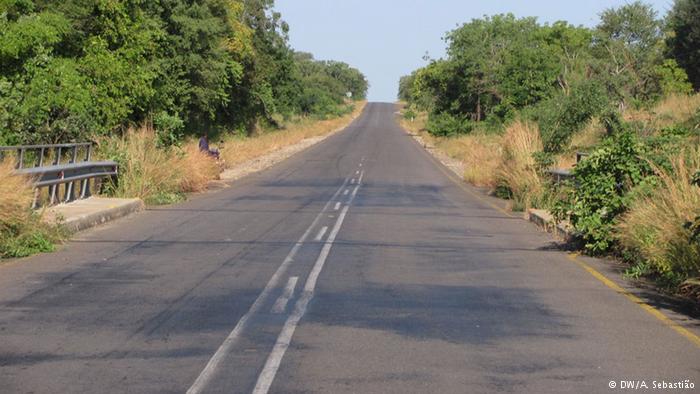
DW / The area where the dead bodies were found is located near N1 national road
The Mozambican parliament on Monday announced that a delegation would assess on the ground the reported discovery of a mass grave containing more than 100 bodies and other bodies abandoned in the bush in the central provinces of Manica and Sofala.
The request for the investigation was made by the Democratic Movement of Mozambique, Mozambique’s second largest opposition party, whose parliamentary leader Lutero Simango highlighted the urgency of the investigation and ensured that the decision was agreed with the Mozambique Liberation Front (Frelimo), the ruling party, and the Mozambican National Resistance (Renamo), the main opposition party.

The Mozambican police, however, have discounted the reports. “The government has its reasons, the government has its own procedures,” Lutero Simango told DW Africa when asked about this.
“As for parliament, it represents the people of Mozambique and has a responsibility to supervise the executive. We [MDM] believe that parliament should shoulder its responsibilities.”
Simango feels it is important to get on-site before deciding anything. “We want to go to the site and, with this committee, find out what is in fact happening. We will have a final position after a debate in the plenary session of parliament,” he says.
Central Mozambique has been the scene of several armed clashes between Frelimo and Renamo, following the political crisis that has persisted in the country for several months now. Several people have died since the end of March when the Renamo deadline for assuming governance in the six provinces where claims 2014 election victory expired.

“I must stress that my party’s leadership has come out publicly to express concern about what is happening in the central region of the country,” said Simango, referring to the fighting of recent months. “About the mass graves and violation of human rights, I must stress that we are for the defence of life. So we are talking about the urgent need to cease these hostilities, this war that is killing Mozambicans.”
Manica province is also known for illegal extraction of gold on the border with the Chimanimani region. About 640 square kilometres in area, the reserves are disputed by illegal Mozambican and Zimbabwean miners. According to reports, illegal gold mining in this region is the reason for frequent, violent confrontations.
Awaiting investigations into the mass grave
Several national and international institutions such as the National Commission on Human Rights, the High Commissioner of the United Nations for Human Rights and the Human Rights Watch, have called for investigations into the allegations of a mass grave. So far, there has been no public response since the case came to light on 27 April.
A task force responding to the discovery of bodies in Manica province decided in the end to bury the bodies, but nothing is known about the cause of death and it is not clear whether the bodies were autopsied.
“I can not say exactly, because it was a multi-sectoral team, comprised of colleagues from the Criminal Investigation Police, the Attorney General’s Office, health workers and other staff. It was possible to ascertain very little, because the bodies were in an advanced state of decomposition,” Manica provincial police commander Armando Mude said.
“So that the bodies should not remain exposed, we ordered graves to be dug. We handed out plastic bags and the chiefs and community leaders and residents dug the graves on Saturday [May 7].”
Autopsies
Mozambican police did not confirm that autopsies had been carried out of the bodies buried in the centre of the country, casting doubt on the sincerity of the procedure. According to coroner and president of the College of Mozambique Doctors Eugénio Zacarias: “Mozambican law does not allow it. People who enforce the law should see to it that an adequate autopsy is carried out whenever violent death or crime is suspected.”
According to the coroner, an autopsy can be done even after the burial, if the true causes of death have not been determined and judicial authorities so determine.
Zacarias also said that the advanced state of decomposition of the bodies is not sufficient reason not to perform an autopsy. “Because the bodies were in an advanced state of decomposition, the tests should have been carried out on-site or at a place where there was security,” he argues. “The area should have been isolated and the security conditions necessary for the autopsy to be carried out should have been put in place, either on site or nearby, so that the bodies are not moved from one place to another jeopardizing public health due to the advanced state of decomposition of some of them.”


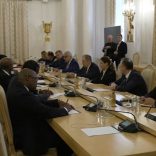

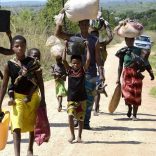

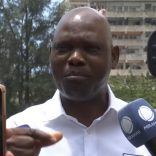
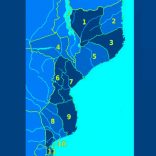




Leave a Reply
Be the First to Comment!
You must be logged in to post a comment.
You must be logged in to post a comment.